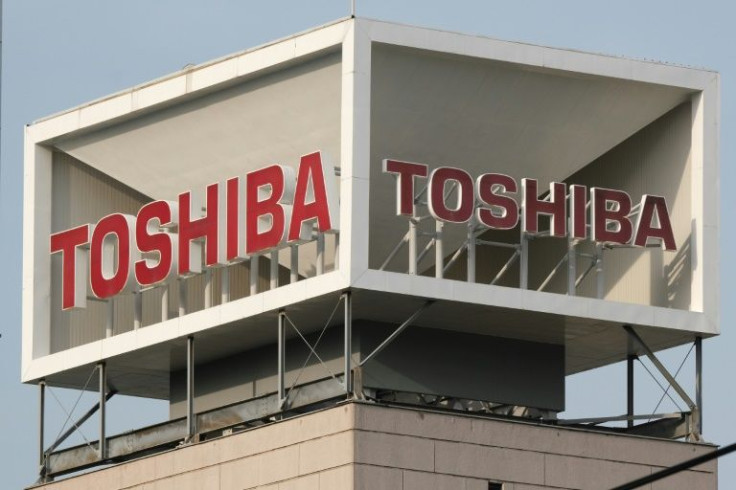Toshiba Unveils New Plan To Split Into Two Companies
Japan's Toshiba on Monday announced plans to split into two companies, revising a controversial proposal to divide into three following a tumultuous period for the storied industrial conglomerate.
The group said it plans to spin off its device segment, including its semiconductor business, in a bid to speed up decision-making and boost stock performance.
Shareholders, who have clashed with management on the best way forward for the troubled company, must still approve the proposal in a vote expected in March. The original spin-off plan faced stiff opposition from some key investors.
The firm also said it will unload its stake in air-conditioning business Toshiba Carrier and seek to sell its elevator and lighting units.
"We believe a spin-off is optimal," president and CEO Satoshi Tsunakawa told investors, promising it would "enable more agile and flexible operations."
He said the sprawling business "struggled with the conglomerate discount and slowness in decision-making" in the past, and streamlining operations would allow investors to choose the portion of the business that interested them.
Toshiba initially unveiled a plan to split into three last November, in what analysts called a test case for other Japanese giants.
But it said Monday that "since this is the first large-scale spin-off transaction in Japan... it turned out there were obstacles which were not initially expected".
Among those were higher-than-expected costs, and an extensive process to list the two new entities.
A two-way split instead "can significantly reduce separation costs, secure financial soundness for each company, and significantly reduce spin-off uncertainty", the company said.
The spin-off is expected to cost 20 billion yen ($173 million) over two years, with running costs also increasing by 13 billion yen a year.

But Tsunakawa said that would be offset by plans to reduce operating costs by 30 billion yen annually.
The Japanese giant wants the split finalised by the second half of the 2022-23 financial year, but it could yet face shareholder opposition.
General Electric and Johnson & Johnson have announced spin-offs in recent months -- a move analysts say is in large part forced on them by financial markets.
Spin-offs can be a way for large corporations to create more value and rationalise operations, but they can also limit coordination between sectors, experts say.
Toshiba dates back to 1875 and was once a symbol of Japan's advanced technological and economic power, but it has been mired in turmoil for several years.
Last year, shareholders voted to oust the board's chairman after a series of scandals and losses, in a rare victory for activist investors in corporate Japan.
As part of the overhaul, the company on Monday declared Toshiba Tec and its air-conditioning, elevator and lighting units "non-core businesses".
It has already agreed to the sale of Toshiba Carrier to the US-based Carrier Corporation in a deal reportedly worth some 100 billion yen.
The conglomerate currently owns 60 percent of the air-con company's shares and will retain only five percent when the sale is completed later this year.
It said it hoped to reach deals to offload the elevator and lighting units within the next two months.
© Copyright AFP 2024. All rights reserved.





















